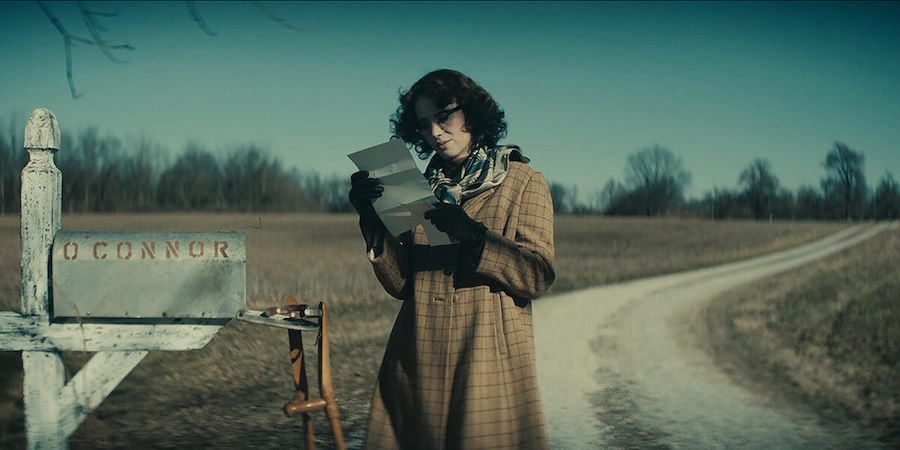In June 2020, The New Yorker published an essay by Paul Elie titled “How Racist Was Flannery O’Connor?” It’s a question pondered in literary circles for decades. While praising the mythical qualities of O’Connor’s stories, which were set in the Deep South, informed by her Catholic beliefs and marked by the grotesque, Elie also points to the many prejudiced comments the author made about Black people in her personal letters. But those watching Wildcat and new to O’Connor are unlikely to know this dynamic even exists.
That’s because Ethan Hawke, director and cowriter of the film, has largely skirted the matter in favour of mounting an acting showcase. Interspersed with scenes of a 24-year-old O’Connor (played by Hawke’s daughter, Maya) are vignettes of her most celebrated short stories. The reenactments are meant to illustrate how O’Connor transported her life into her work, but more often than not, they halt momentum.
You may unsubscribe from any of our newsletters at any time.
Wildcat is set in 1950. A publisher criticizes O’Connor’s manuscript for her first novel, Wise Blood, just as she leaves New York City to return to her family home in Milledgeville, GA. O’Connor looks up to her heroes Joyce, Kafka and Dostoyevsky but struggles to find her artistic footing, all while despairing about how exactly her talents are meant to serve God. It is also during this period that she is diagnosed with lupus — the autoimmune disease that killed her father nine years earlier and would ultimately take her life in 1964 at the age of 39.
More on Broadview:
- ‘The Holdovers’ takes audiences back to the ’70s in touching film about three lost souls
- ‘Satan Wants You’ revisits the ritual abuse scare of the ’80s and ’90s
- In books and on screen, midlife women are taking control of the story
Among the six O’Connor short stories presented in Wildcat are “Parker’s Back,” in which a man named Obadiah gets a giant tattoo of the face of Jesus, much to his wife’s horror, and “Good Country People,” about a one legged atheist who falls victim to a nefarious Bible salesman. Hawke also treats viewers to the climactic moments of “Everything That Rises Must Converge.” It’s the funniest reenactment of the bunch, not least because it’s also one of the briefest.
Throughout Wildcat are glimpses of a greater, more thought-provoking movie. At a cocktail party, O’Connor reacts harshly to a fellow writer who advises she stop using the N-word in her work: “The people I’m writing about would never dream of using any other word.” Moments later, she watches silently as partygoers mock the ritual of communion. “It’s a lot harder to believe than not to believe,” she finally snaps. “What people don’t understand is how much religion costs — they think that faith is a big electric blanket, when really, it’s the cross.” But Hawke does not dig deep into these themes. The author’s turbulent relationship with her mother, Regina (Laura Linney), is similarly underdeveloped.
The real O’Connor rarely left her characters unscathed, so why does Hawke portray her in such an idealized light? After all, here was an artist who lampooned southern bigotry in her work while expressing unease about desegregation in her private correspondence. Early on in Wildcat, a relative tells O’Connor that her latest short story has left a bad taste in her mouth and asks her to write something cheerier. O’Connor sighs. “Well, you weren’t supposed to eat it.”
***
Robert Liwanag is a digital editor at Navigatr.
This article first appeared in Broadview’s January/February 2024 issue with the title “Portrait of the Artist as a Young Woman.”














A review of an AMERICAN author in an AMERICAN movie. I would rather read Canadian content. Thank you